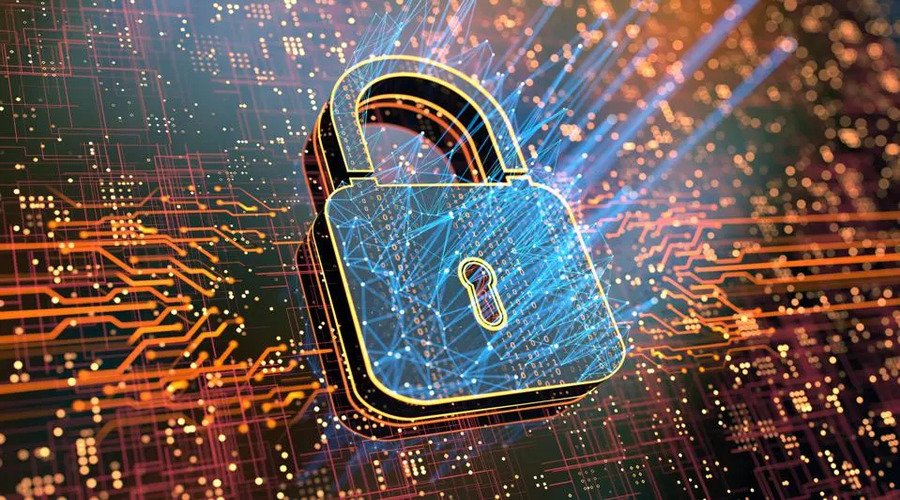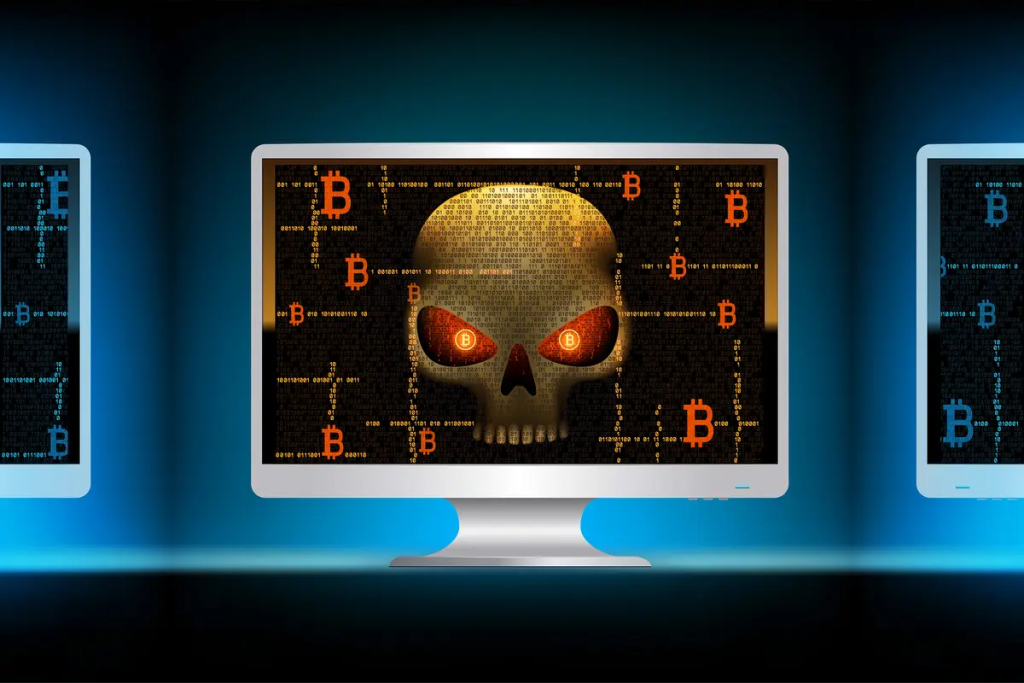
Cryptocurrencies have revolutionized the way we perceive and use money, offering a decentralized and secure alternative to traditional financial systems. As the popularity of cryptocurrencies continues to grow, it becomes increasingly important to understand the significance of crypto security. In this article, we will explore the fundamentals of crypto security, discuss common risks in the crypto space, and provide best practices to safeguard your digital assets.
Understanding the Basics of Cryptocurrency
Before delving into crypto security, it’s essential to grasp the basics of cryptocurrency. Cryptocurrencies, such as Bitcoin and Ethereum, are digital or virtual currencies that use cryptography for secure transactions and control the creation of additional units. The underlying technology behind cryptocurrencies is known as blockchain, which is a decentralized and transparent ledger that records all transactions.
Cryptography plays a crucial role in ensuring the security and integrity of cryptocurrency transactions. It involves complex mathematical algorithms that encrypt data, making it virtually impossible to alter or forge transactions. By leveraging cryptography, cryptocurrencies provide a high level of security and prevent fraudulent activities.
Common Security Risks in the Crypto Space

While cryptocurrencies offer robust security measures, the crypto space is not immune to risks and threats. It’s important to be aware of these risks to protect your digital assets effectively. Some common security risks in the crypto space include:
- Hacking and Theft
Cybercriminals target individuals and exchanges to steal cryptocurrencies. They employ various techniques such as hacking into exchanges, compromising user accounts, or exploiting vulnerabilities in software wallets. It is crucial to implement robust security measures to safeguard your cryptocurrencies.
- Phishing and Social Engineering Attacks
Phishing attacks involve tricking individuals into revealing sensitive information, such as login credentials or private keys, by masquerading as legitimate entities. Social engineering attacks, on the other hand, manipulate individuals into divulging confidential information through psychological manipulation. Being cautious and verifying the authenticity of communication is essential to avoid falling victim to these attacks.
- Malware and Ransomware
Malicious software, including malware and ransomware, can infect computers and mobile devices, compromising the security of crypto wallets and transactions. It is crucial to use reputable antivirus software and regularly update your devices to prevent malware infections.
- Ponzi Schemes and Fraudulent ICOs
The crypto space has seen its share of fraudulent schemes, including Ponzi schemes and fraudulent initial coin offerings (ICOs). It is important to conduct thorough research and due diligence before investing in any project. Beware of promises of guaranteed high returns or projects that lack transparency.
Best Practices for Crypto Security
To ensure the safety of your cryptocurrencies, it is crucial to follow best practices for crypto security. By implementing these measures, you can significantly reduce the risk of unauthorized access and theft. Here are some key practices to consider:
Secure Password Management
Using strong, unique passwords for your crypto accounts is vital. Avoid reusing passwords across multiple platforms, as it increases the risk of a breach. Consider utilizing a reliable password manager to generate and store complex passwords securely.
Two-Factor Authentication (2FA)
Enabling two-factor authentication adds an extra layer of security to your crypto accounts. By requiring a second form of verification, such as a unique code generated by an authentication app or received via SMS, you can prevent unauthorized access even if your password is compromised.
Hardware Wallets and Cold Storage
Hardware wallets provide offline storage for your cryptocurrencies, keeping them secure from online threats. These physical devices store your private keys offline, minimizing the risk of theft. Cold storage refers to storing your crypto assets in an offline environment, such as a hardware wallet or a paper wallet, ensuring maximum security.
Keeping Software and Devices Up to Date
Regularly updating your crypto wallet software, operating systems, and devices is crucial for maintaining security. Updates often include security patches that address vulnerabilities and protect against emerging threats. Ignoring updates can leave your devices and wallets susceptible to attacks.
Avoiding Suspicious Links and Downloads
Be cautious of clicking on suspicious links or downloading files from unverified sources. Phishing attacks often rely on deceptive links that lead to fake websites designed to steal your sensitive information. Exercise caution and verify the authenticity of websites and sources before clicking on any links or downloading files.
Choosing Reliable Exchanges and Wallets
Selecting reputable cryptocurrency exchanges and wallets is essential for the security of your digital assets. Here are some factors to consider when choosing exchanges and wallets:
Researching and Selecting Reputable Exchanges
Thoroughly research and review the reputation and track record of crypto exchanges before using their services. Look for exchanges that prioritize security measures, such as cold storage for funds and two-factor authentication for user accounts. Reading user reviews and checking for any past security incidents can help you make an informed decision.
Different Types of Wallets and Their Security Features
There are various types of wallets available, each with its own security features. Hardware wallets, as mentioned earlier, provide offline storage and are considered one of the most secure options. Software wallets, including mobile and desktop wallets, offer convenience but require additional precautions, such as strong encryption and regular backups.
Tips for Storing and Managing Cryptocurrencies
When using wallets, it is important to follow best practices for storing and managing your cryptocurrencies. This includes securely storing your private keys or recovery phrases, regularly backing up your wallets, and keeping a record of your transactions for reference. Taking these precautions can help you avoid the loss of funds or access to your crypto assets.
Importance of Secure Communication
In addition to securing your crypto assets, it is crucial to prioritize secure communication to protect your privacy and sensitive information. Here are some measures to consider:
End-to-End Encryption
Using communication platforms that offer end-to-end encryption ensures that your messages and calls are secure and cannot be intercepted or accessed by unauthorized parties. Encrypted messaging apps, such as Signal and Telegram, provide robust encryption protocols to protect your conversations from eavesdropping.
Privacy-Focused Messaging and Communication Apps
Opting for privacy-focused messaging and communication apps adds an extra layer of security to your conversations. These apps prioritize user privacy and often include features like self-destructing messages, anonymous sign-up options, and enhanced privacy settings to give you greater control over your personal information.
Educating Yourself and Staying Informed
Keeping yourself informed about the latest developments in crypto security is crucial for maintaining a strong defense against emerging threats. Here are some ways to educate yourself and stay informed:
Keeping Up with the Latest Security News and Developments
Regularly reading reputable sources and staying updated on crypto security news will help you stay informed about the latest threats, vulnerabilities, and best practices. Follow security-focused blogs, subscribe to newsletters, and participate in online forums to stay ahead of potential risks.
Engaging with the Crypto Community and Forums
Engaging with the crypto community can provide valuable insights and knowledge-sharing opportunities. Participate in online forums, discussion groups, and social media communities dedicated to cryptocurrencies and security. Engaging in conversations with fellow enthusiasts can help you learn from their experiences and gain practical advice.
Learning from Past Security Incidents
Reviewing past security incidents and case studies can provide valuable lessons in crypto security. Analyze notable breaches and attacks to understand the vulnerabilities and mistakes that led to those incidents. By learning from these examples, you can better protect yourself and your digital assets.
The Future of Crypto Security
As the crypto landscape continues to evolve, so does the field of crypto security. Here are some key areas to watch for future advancements:
Advancements in Security Technologies
The constant advancement of technology brings forth new tools and techniques for enhancing crypto security. Expect to see advancements in areas such as encryption algorithms, secure hardware solutions, multi-factor authentication methods, and decentralized identity systems.
Regulatory Efforts to Enhance Security
Governments and regulatory bodies around the world are working to establish frameworks that address security concerns in the crypto space. Anticipate the implementation of regulations and standards that aim to protect users and promote secure practices in the industry.
The Evolving Landscape of Crypto Threats
As crypto security measures become more robust, malicious actors adapt and develop new tactics. Stay vigilant against emerging threats such as sophisticated phishing attacks, advanced malware, and novel social engineering techniques. Ongoing awareness and preparedness are vital to staying one step ahead of potential risks.
Conclusion
In conclusion, understanding crypto security is of paramount importance in safeguarding your digital assets. By grasping the basics of cryptocurrency, being aware of common security risks, and implementing best practices, you can significantly reduce the likelihood of falling victim to cyber threats. Remember to choose reliable exchanges and wallets, prioritize secure communication, educate yourself about the latest developments, and stay informed about emerging security trends. With the right knowledge and proactive measures, you can navigate the crypto space with confidence and protect your investments. By following best practices, staying informed about emerging threats, and adopting secure communication methods, you can mitigate risks and ensure the safety of your cryptocurrencies. Stay proactive, educate yourself, and take the necessary steps to fortify your crypto security. Your digital wealth is worth safeguarding.
I have been writing about cryptocurrencies for over two years and I’m widely considered one of the most knowledgeable and respected authors in the space. I have a deep understanding of the underlying technology and market dynamics, and my insights have helped countless investors make informed decisions about their portfolios. I’m a speaker and commentator, and my work has been featured in major publications such as CoinDesk, Forbes, and The Wall Street Journal. I also run a popular cryptocurrency trading signals service that has helped thousands of people make money in the volatile but potentially lucrative world of digital assets.


